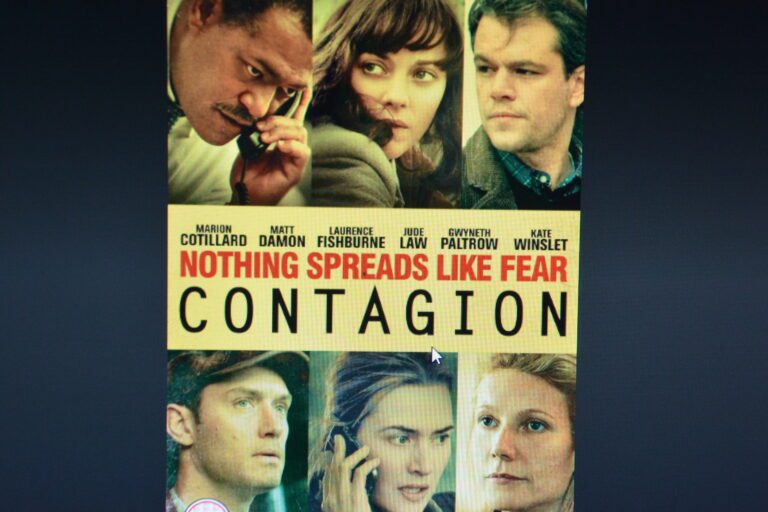
Films are popular when they reflect the fundamental conflicts and crises of the times. From 1961, Michelangelo Antonioni’s “La Notte” captured mankind’s growing sense of existential isolation and despair through the eyes of a marital couple stuck in a tedious marriage. Fast forward 14 years and you get to see the culture’s answer to marital tedium in the film “One Flew Over the Cuckoo’s Nest” based upon the book of the same name written by Ken Kesey of Merry Prankster fame. Kesey and his Merry Pranksters took it upon themselves “to be here now” and live for today with the help of LSD and free love.
“One Flew Over the Cuckoo’s Nest” was a premonition that if you attempt to live a life without rules, you are likely to get lobotomized just like Randle McMurphy at the end of the film. But since films are not a culture’s therapist, film premonitions often go unheeded. Which meant that by the 1970s, the culture had fully embraced the drug revolution best represented by the flower children of Haight-Ashbury. But, alas, the flower children gave birth to Charles Mansion and his heinous crew which led to the death of Sharon Tate and thus the end of the fantasy that a life of drugs, sex and rock ‘n’ roll is a good life.
Well, it’s been a long time since “One Flew Over the Cuckoo’s Nest” and there has been many a popular film made that has acted as a warning of what is to come. In fact, there have been so many of them and the warnings have been so frequent that it’s tough to consolidate them all into a coherent whole. But let’s try anyway.
The film “Social Network” from 2010 was about Mark Zuckerberg, the founder of Facebook, and it should have served as a wakeup call to all humans that the internet and social media was a beast that we could not control. Proof of that is seen in data that suggests the logarithms it uses are designed to addict us all to inane mindless content. Other films that express the same warning are the “Terminator” films and “The Matrix” films, which warn that computers are dangerous things. The major difference between reality and these films is that the films have happy endings.
Related to this but set in terms of human despair is the film “Drive” starring Ryan Gosling as a lonely stunt car driver with a need for love and a desire to kill things in his way. This film rests upon the good looks of Gosling, Carey Mulligan, and Oscar Isaac and the brilliant film direction of Nicolas Refn. But make no mistake, the message of this film is that we are alone, isolated and are angry enough that we want to kill. Like the 1942 existential novel “The Stranger” by Albert Camus, which described a man with no human connection who randomly commits murder, the film “Drive” shows modern life as an isolating experience where we are alone and stuck in our cars. The 2021 film “Drive My Car” based upon the short story by Haruki Murakami, holds the same theme of human isolation and the failure to find love.
If themes of human isolation in the age of social media were not enough, we also have another film theme that has been serving up warnings of the apocalypse to come. The most foreboding and predictive was the 2011 film “Contagion” starring Matt Damon and Gwyneth Paltrow about a virus that nearly destroyed the world. The similarities between this film and the COVID virus is frightening. But “Contagion” is just one of many films that have warned of global virus catastrophes. Films like “World War Z,” I Am Legend,” “28 Days Later” and most zombie flicks are about the way viruses are lethal and why we need to prepare for them.
Another popular film that serves as a warning sign to a hypercompetitive culture was “Whiplash” made in 2014 by the director, Damien Chazelle. It’s a story of the unrelenting cruelty and abuse one must endure to get to the top of your field. This theme is common in my practice of sport psychology where week after week, I counsel many over-stressed, overwhelmed child prodigies in the field of sports in which abusive coaching, overtaxed bodies, injuries, travel schedules and a hypercompetitive peer groups is more the norm than the exception.
But last and not least, the final theme that one observes in modern cinema is best displayed in the 2017 film “Get Out,” which is about the trials, tribulations, and death threats one can expect if you happen to be a part of an interracial relationship. It starred Daniel Kaluuya, the Black British actor with those magical eyes and the beautiful Allison Williams. This film highlights the barriers, paranoia and overall bad feelings that come with interracial affairs.
Great films tap into our deepest challenges as humans. We watch movies to be entertained but also to be educated. As an example, who knew that Elvis Presley grew up in an African- American neighborhood or that nearly all his popular songs and moves were taken from them?
Thanks to human ingenuity, progress is inevitable. But with progress comes crisis. Existential crisis and anomie started way back when Nietzsche proclaimed that “God is dead.” Then we had the challenges of the computer age and information overload. Add to that the way artificial intelligence has made social media addictive. Throw in concerns about global viruses and the fact that America is now truly a melting pot which brings together cultures into a stew that is hard to cope with. And we in Nassau County are right in the middle of all this. Not so long ago, it was Queens that had all those cultures, but now Nassau is the new Queens.
Movies cannot change things, but they certainly can warn us of what is coming. So enjoy and learn.







